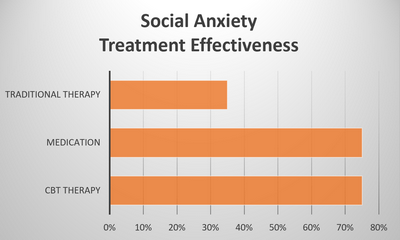
The term "phobia" is used to describe any strong, persistent, and unreasonable fear of something or an object. Phobias are common and often occur for several years. These phobias have become so intense that the individual may experience extreme anxiety if they are exposed to the object of his or her phobia. The symptoms of phobias can be very serious and include panic attacks and irrational thoughts.
In order to diagnose phobias it is important to have an examination of the person’s medical history, as this will reveal the exact nature of their phobia and any other mental disorders they might have. One of the most effective methods of treating phobias is to determine which phobia they actually suffer from and then treat this phobia. Once you have determined that your phobia is real, you can start using one or more of the many treatments available to reduce or eliminate the phobia.
Phobias usually develop over time and have many causes. The most common cause of phobias is the inability to face the object of your phobia. Some phobias are caused by an event or circumstance. Other phobias are more psychological in nature and may develop after a traumatic experience. There are many different types of phobias, including social phobias, religious phobias, food phobias, and sexual phobias.
There are several different treatments for phobias, including cognitive behavioral therapy, medication, hypnosis, and physical exercises. Cognitive behavioral therapy is most commonly used to treat social phobias because this treatment teaches the person to recognize and control their phobias, in addition to providing a variety of cognitive techniques to reduce or eliminate them. Medication is used to control anxiety symptoms and is usually combined with cognitive behavioral therapy.
Many people with severe phobias begin by performing several simple physical exercises, such as breathing exercises and muscle relaxation. These simple exercises help to improve circulation in the body and increase the patient’s comfort level. Many psychologists will prescribe medications in combination with these exercises to help reduce or eliminate the patient’s phobia.
In more severe cases of phobias, a psychologist may have to use medications to help the patient overcome their phobia. Medications will usually involve anti-anxiety or antidepressant medication. There are many types of anti-anxiety medications such as beta blockers and benzodiazepines, which are also called tranquilizers. Another type of anti-anxiety medication commonly prescribed for cases of social phobias is Lorazepam. Although these medications are often helpful, they must be taken only under the supervision of a psychiatrist or psychologist.
Cognitive behavioral therapy is often combined with physical exercises in order to eliminate the phobia completely. The therapist will teach the patient new skills that help him or her to deal with their phobia without fear. These skills include breathing, concentration, relaxation, and positive thinking.
In most cases it is very difficult for a person with a phobia to completely eradicate their phobia, but some people may find it extremely beneficial to completely rid themselves of the phobia. However, in most cases, the person will have to continue to practice these practices in order to fully overcome their phobias. However, most individuals who have successfully conquered their fears have found it to be quite beneficial.
Most phobia sufferers will have some degree of embarrassment when others are around them. Many of these individuals will also suffer from depression and stress due to the fear they feel about having a phobia. Although this may seem like a burden, it can be a great benefit to conquer your fears. If you suffer from social anxiety, you will find that overcoming your fears will be a great help in your social life.
It can be difficult for social anxiety sufferers to find a suitable group to meet other social anxiety sufferers in, however, there are many online social communities available to help sufferers. Meetings are a great way for social anxiety sufferers to interact with other people in order to help them overcome their fears.
It is important to make sure that you are treated for any social anxiety disorder as soon as possible. Unfortunately, many people with social anxiety do not seek treatment until they have developed a serious phobia. This will often lead to a lifetime of anxiety because they do not seek treatment in the early stages of their disorder.

Leave a Reply